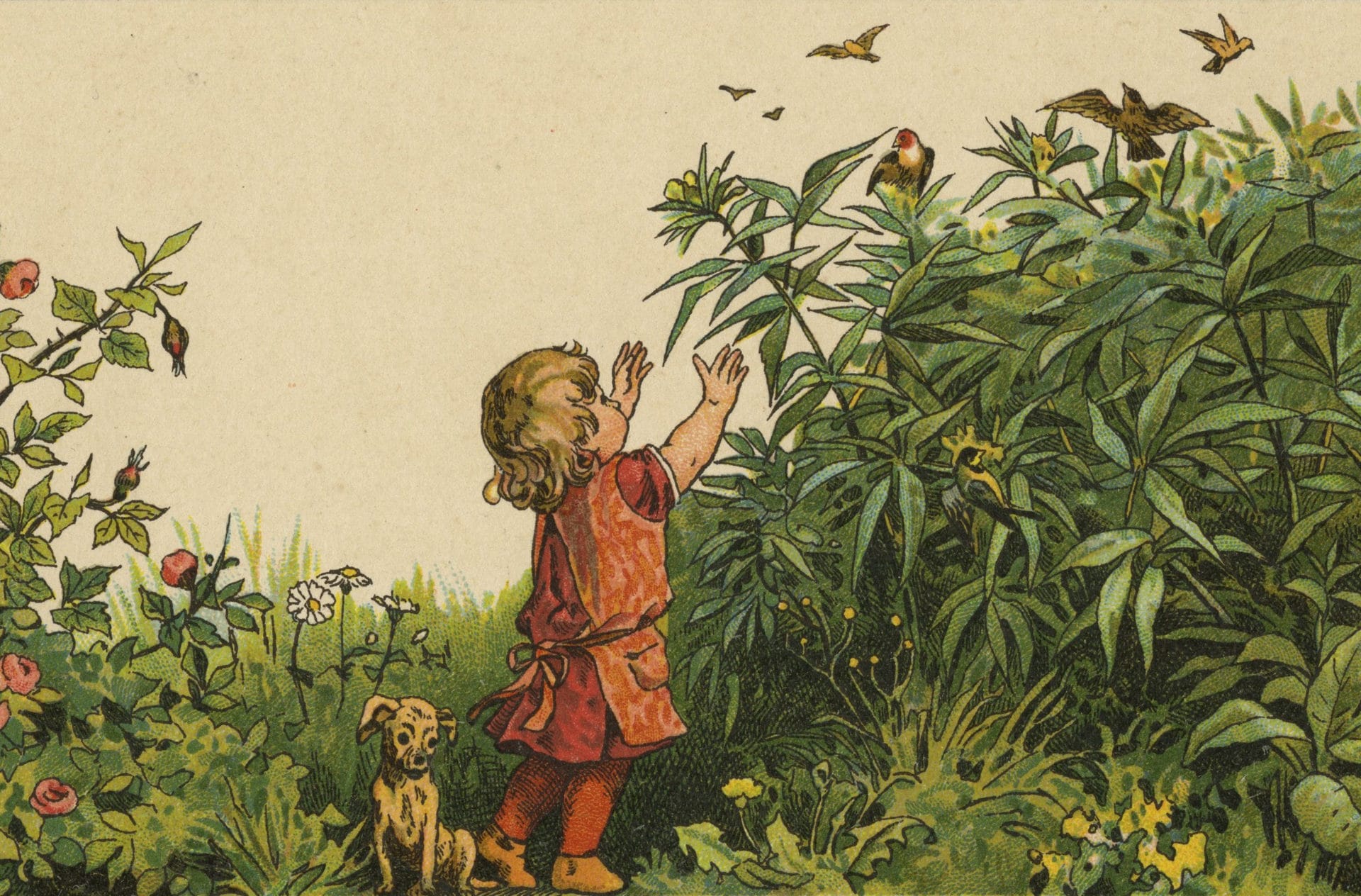
Büchlein vom Hanf (Little book about hemp), 1889.
Büchlein vom Hanf
Before the First World War, German farmers were encouraged to grow hemp to aid in the return of a self-sufficient German economy.


Büchlein vom Hanf (Little book about hemp), 1889.
Before the First World War, German farmers were encouraged to grow hemp to aid in the return of a self-sufficient German economy.
“O sieh’, was steh’n auf dem Papier für Bilder und Geschichten hier: Vom Hanf, den Vöglein hat gepickt, den man zu Öle hat zerdrückt…”
This rhyme comes from the 24-page “Büchlein vom Hanf. Gedichte von H. Jäde, Zeichnungen von C.W. Müller” (translation: Little book about hemp. Poems by H. Jäde, illustrations by C.W. Müller”) from 1889 which is part of the vast collection belonging to the Hash Marihuana & Hemp Museum in Amsterdam. The wonderful illustrations and poems explain how important hemp cultivation was in the Alsace region (German territory since 1870) to everyday life in the German Empire.
In the quiet before the storm of the First World War, German farmers were encouraged to grow hemp to aid in the return of a self-sufficient German economy and this little book was the perfect pamphlet for this objective. Even though the images in “Büchlein vom Hanf” often paint a romantic picture of rural life, this was not the reality of the situation. Hemp processing was hard labour and it would take whole families’ every effort just to earn a living at it.
After the Second World War, hemp cultivation in Germany all but disappeared, chiefly thanks to competition from imported fibres such as cotton and jute, and newly developed synthetic fibres.
In 1982, around one hundred years after the publication of “Büchlein vom Hanf,” German hemp received the final blow when hemp cultivation was outlawed completely thanks to a change in legislation. At that time, the last hemp farmer in Germany, war veteran Martin Butter, was forced to cease his production. He would sell his hemp to manufacturers of rope, clothing and cigarette paper, and it was used locally as building material. Instead of lodging a complaint with the European Court of Justice – the European Union permits hemp cultivation on account of its low THC content – Butter accepted a monetary compensation from the German government. Fourteen years later, Chancellor Helmut Kohl went on to abolish the ban in response to ever louder protests from hemp enthusiasts, scientists and environmental organisations.
Today hemp is being rediscovered in Germany as an industrial crop and German farmers can take this rhyme from “Büchlein vom Hanf” to heart: “Sowing is no simple task: not too little and not too much, not too thinly and not too thickly: the hemp seed is a masterpiece.”
Sign up to get the latest news about the museum, upcoming exhibitions and events.
Oudezijds Achterburgwal 148
+31 (0)20-6248926
amsterdam@hashmuseum.com
Monday to Thursday: 12:00 – 20:00
Friday to Sunday: 10:00 - 22:00
More information
Carrer Ample 35
+34 93 319 75 39
barcelona@hashmuseum.com
Every day: 11:00 – 20:00
More information
© 1987 - 2026 Hash Marihuana & Hemp Museum. All Rights Reserved. CSS Status 404